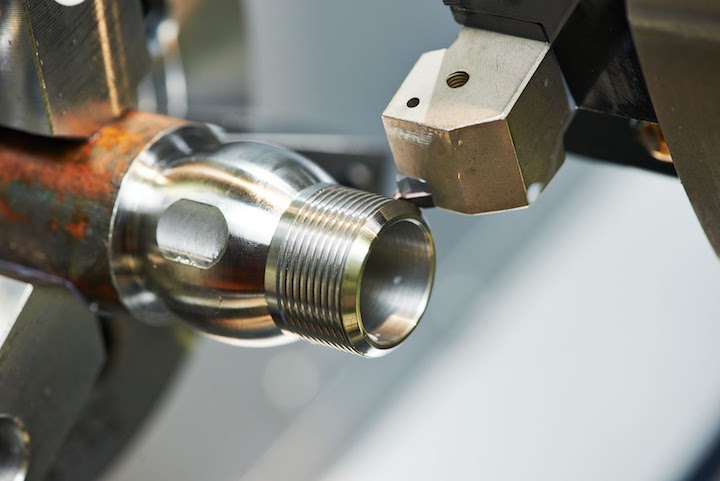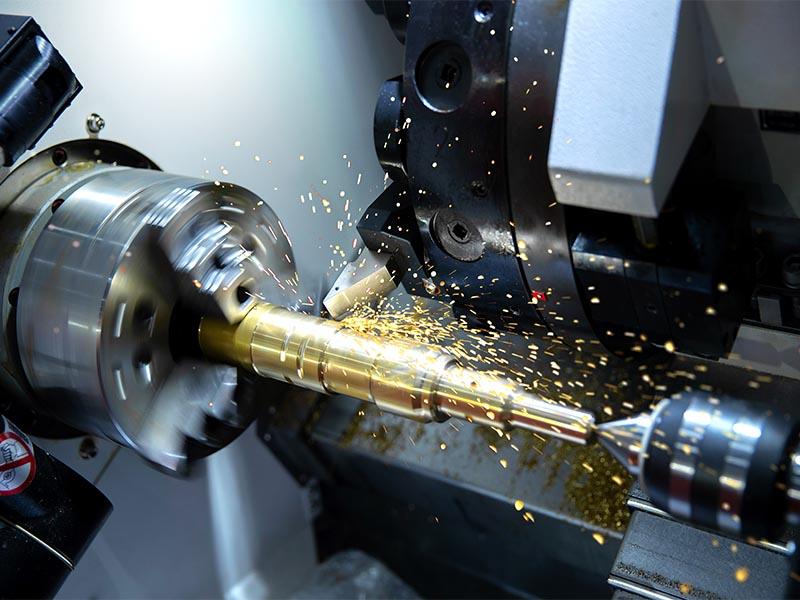CNC Machining: Remodeling Trendy Manufacturing with Precision and Automation
CNC Machining: Remodeling Trendy Manufacturing with Precision and Automation
Blog Article
CNC Machining, or Computer Numerical Control machining, has revolutionized the world of manufacturing with its ability to bring precision productivity, efficiency, and automation into the process of production. This technology uses computer-controlled machines to cut, shape and create intricate parts and pieces of components using materials like metal, plastic, wood, as well as composites. Through automation of many processes that once required humans to perform, CNC machining has significantly improved the accuracy and speed of manufacturing. It has made it essential to businesses like automotive, aerospace as well as medical, electronics, and. The integration of computers with machining tools has opened up many new opportunities in the manufacturing of intricate and precise parts, increasing the quality and scalability of production.
One of the major advantages of CNC machining is that it has the capability to create highly precise and complicated parts that would be nearly impossible to make using conventional manufacturing techniques. CNC machines work on digital drawings, which implies that once the design of a piece is programmed in the machine, it's able to be produced accurately and in a consistent manner. This is particularly beneficial in fields like aerospace, automotive, and electronics where precision is crucial. Furthermore, CNC machining is capable of working with an extensive assortment of different types of material, ranging from soft plastics to hard metals, enabling manufacturers to fabricate parts that fulfill specific specifications for durability, strength and heat resistance. The range of options offered by CNC machining has opened up new possibilities for product design as well as engineering.
One of the significant advantages of CNC machining is its versatility in working with a wide spectrum of substances. It doesn't matter if manufacturers deal with tough metals like steel or titanium, or more soft substances like wood and plastic, CNC machines can be adjusted to deal with a variety of jobs of shaping and cutting. This makes CNC manufacturing suitable for pieces across a variety of fields including medical equipment and aerospace components, to automobile and consumer electronics. The ability to machine intricate geometries and precision tolerances has made CNC machines the most popular technique for making intricate components that would be difficult, if not impossible, to make using conventional methods.
CNC Machining's flexibility is yet another reason it has become an integral part of manufacturing today. The technique can be utilized in conjunction with an array of substances, ranging from metals such as stainless steel, to soft wood and plastics. This means that CNC machining is suited for the production of parts in a variety of industries, including automotive, aerospace, electronic, medical and consumer products. Also, CNC machines can perform a range of operations, including cutting, milling, engraving, drilling, or even 3D contouring, all within a single setup. The multi-functionality of CNC machines eliminates the need to have multiple machines as well as part transfers, further increasing effectiveness. For prototypes, whether they are made or producing huge batches of parts, CNC machining offers the versatility to satisfy a range of needs in production. To gather extra information please check out Premiumparts
As well as the speed and accuracy, CNC machining is valued because of its efficiency, particularly in large-scale production runs. Once the initial setup and programming of the machine are complete making additional parts will require only minimal effort, which reduces overall production costs. When manufacturing companies are working with high-end metals like aerospace grade alloys, CNC is a method of reducing waste by optimising the cutting procedure, ensuring that each part can be produced without loss of material. This precision and efficiency make CNC machining an ideal choice for prototyping as well as full-scale production because it allows companies to rapidly test and iterate on designs while keeping production costs manageable.
The environmental impact on the environment CNC manufacturing is another factor to consider. While traditional manufacturing methods often produce a large amount of waste material, CNC machines are renowned for their efficiency in manufacturing. In order to precisely cut and shape material, CNC machining minimizes waste which reduces the material cost as well as environmental impacts. Furthermore, the automated nature of CNC machines can reduce the energy usage as compared to manual machining. Many modern CNC machines are designed with sustainability in mind, making use of energy-efficient systems and motors in order to decrease the carbon footprint of their machines. This is what makes CNC machineries an eco-friendly choice for companies looking to cut down on waste and preserve resources.